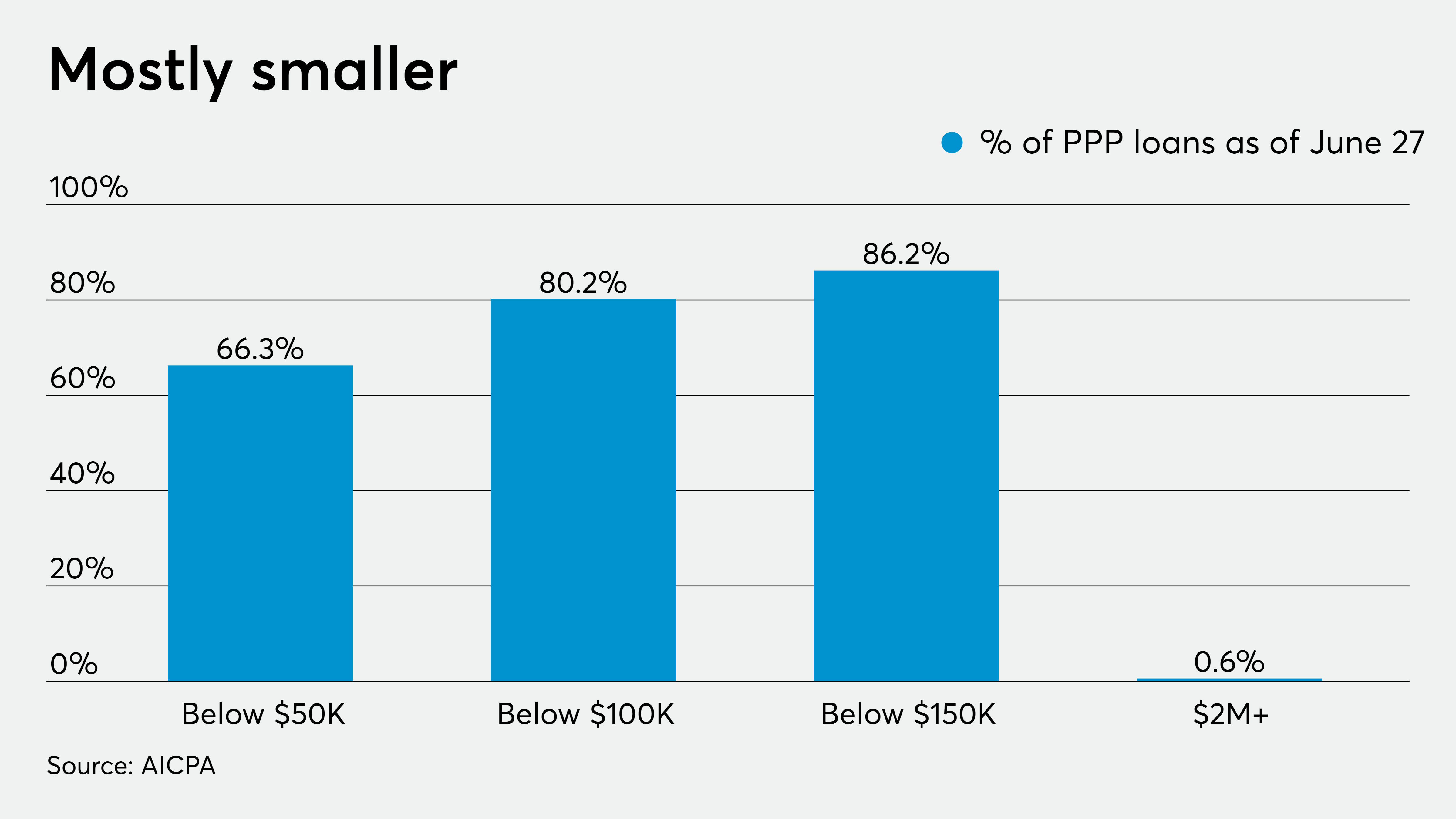As of today, the Internal Revenue Service has ruled that expenses paid with forgiven Paycheck Protection Program loans are not deductible. But what if the loan is processed and expenses are paid in 2020, but the forgiveness determination is not made until 2021? Such circumstances are not only possible but likely to occur, according to Roger Harris, president and COO of Padgett Business Services.
“The loan recipient now has up to 24 weeks to spend the proceeds, so that’s six months added to the time they received the loan,” he said. “On top of that, you have to fill out an application asking for forgiveness, and furnish documents, and that will take some time. Once you give it to the bank, the bank has two months, and then the [Small Business Administration] has three months to make the decision. So it’s very possible to have expenses paid in one tax year, and the forgiveness determination made in the following tax year.”
Moreover, the forgiveness determination could well be after the deadline for filing the return for the year in which the expenses were actually paid.
“When the expenses paid with the PPP loan proceeds were ruled to be nondeductible, most of us thought that was something we would deal with next tax season,” Harris said. “But the extension of time to use the proceeds to 24 weeks has created the likelihood that at least some loans will not be forgiven until after the filing date for next year’s returns. There are decisions to be made by fiscal-year taxpayers, and by almost all taxpayers who have to pay estimated taxes, who need to know the process they’re supposed to follow. If they get the loan in 2020 and forgiveness is complete in 2020, it’s a non-issue. But if it bleeds over into next tax year and goes past the filing deadlines, we need guidance.”
Harris posited this example: A small business with a fiscal year ending September 2020 receives a PPP loan for $100,000 on July 10, 2020. (The PPP resumed accepting applications on July 6, 2020, with a new deadline to apply for a loan set at Aug. 8, 2020.) By the end of 24 weeks, or Dec. 25, 2020, the small business has spent the entire amount on qualified expenses to have the loan forgiven. The small business completes the application for forgiveness and submits it to the bank on Dec. 30, 2020. The bank has 60 days to process the application, which would give it until March 1, 2021. When the SBA receives the bank’s submission, it has 90 days to respond, which means it may be nearly June 1, 2021, before the loan recipient receives the forgiveness determination.
“Taxpayer is responsible for filing a return for the fiscal year ending Sept. 30, 2020,” Harris said. “Expenses paid between the time the loan was funded and Sept. 30, 2020, might be nondeductible if the loan is forgiven, but the taxpayer won’t know that in time to file the return.” 
“For the new fiscal year beginning Oct. 1, 2020, expenses are being paid that likewise could be forgiven,” he continued. “The taxpayer doesn’t have the information necessary to calculate estimated tax payments during this time. If the estimated taxes paid are not enough because the business considered the expenses deductible, will penalties be charged?”
The same issues in the example may confront an individual taxpayer, Harris noted. “Should all taxpayers that might be affected file for extensions until they know the final status of their loan forgiveness application? Or should they all amend their return?”
“These are solutions to a problem that can be avoided if the position on deductibility is reversed,” he said.
“Most small-business people and practitioner groups would agree that the real answer is to allow those expenses to be deductible, in which case the problem disappears,” he said. “On May 5, 2020, the Senate Finance Committee sent a letter, which included the signature of the House Ways Means Committee chairman, that stated they did not think the IRS ruling on non-deductibility was consistent with congressional intent. There’s clearly a large group of congressmen and senators who disagree with the ruling.”